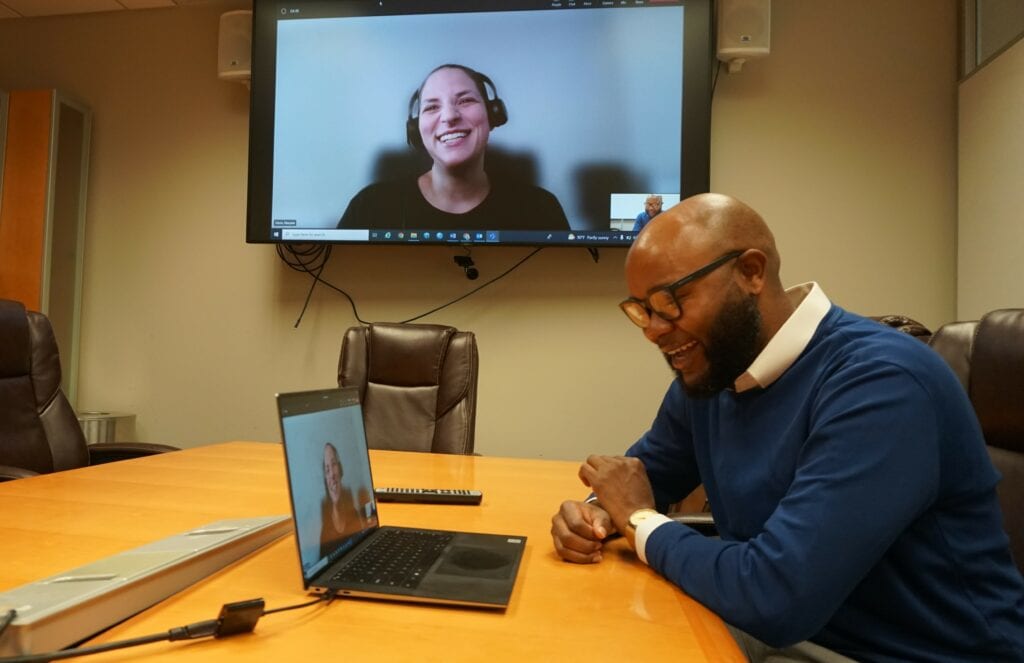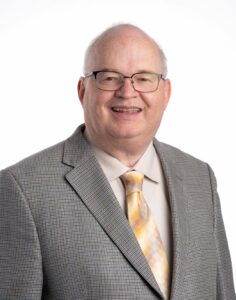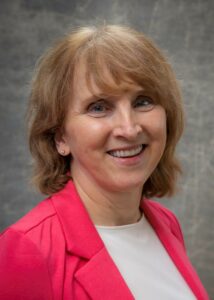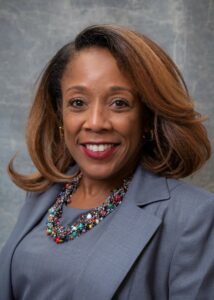
A routine monthly meeting, a comment and a question were the genesis for three publications this year by two TRI KL2 Mentored Research Career Development Program scholars.
Maryam Garza, Ph.D., MPH, MMCi, and Tremaine Williams, Ed.D., who became KL2 scholars in 2021, are co-authors on papers in BMC Medical Research Methodology; Journal of Multimorbidity and Comorbidity; and Journal of the American Medical Informatics Association.
For Garza and Williams, assistant professors in the College of Medicine Department of Biomedical Informatics, their early success speaks to the testimonies they have heard about the power of collaboration and team science.
“As early career investigators and KL2 scholars, we’re trying to carry out our research, write papers and grants, and it’s a lot to get done by yourself,” Garza said. “So collaboration is really helpful to get you out of any holes and elevate the quality of the work. It is also much more enjoyable to not be alone in this work.”
Williams agreed. “When I’ve taken a project as far as I can, I know I can go to Maryam and she will have some questions, suggestions or substantial contributions to guide the direction of the work.”
The two realized the opportunity for collaboration during a regular monthly meeting of the KL2 scholars as Williams gave his status report. He heard Garza say, “Ooh, I didn’t realize how much our worlds intersect.”
Her comment prompted him to ask the group if anyone was interested in collaborating. “Maryam was the first person to say, ‘Yes, I would love to collaborate,’ so it went from there,” he said.
Both are working in the area of data quality, and their worlds intersect at how to streamline processes of getting that data from point A to point B.
Garza’s work is focused on overcoming data-related barriers that slow the search for cures and vaccines.
“Informatics has a critical role to play improving the data pipeline, which will translate to more efficient bench-to-bedside processes,” Garza said. “No one can run clinical trials and leverage the electronic health record if the data doesn’t exist.”

Williams’ work has focused on expanding the informatics capacity of the electronic health record to support patients with two or more chronic conditions, referred to as multimorbidity patients.
“These multimorbidity patients are behind the curve because medical care has been traditionally siloed into addressing single chronic diseases, and the data we have is a byproduct of those treatments,” he said. “The informatics infrastructure is lagging. We don’t have, for example, clinical data repositories or places that could support very robust, global clinical and translational research for multimorbidity patients.”
He noted that Garza is working on an emerging data standard called HL7® FHIR® (Fast Healthcare Interoperability Resources 1 ), which defines how health care information can be transferred between information systems regardless of how those systems store it.

“Maryam is going to change the world with the work that she’s doing to enable the use of real world data in real time,” Williams said. “But we can’t apply much of Maryam’s work on the FHIR standards with multimorbidity patients because most health care systems don’t currently have the data infrastructure needed for the management and longitudinal tracking of the compounding of chronic diseases.”
TRI Associate Director John Arthur, M.D., Ph.D., co-director of the KL2 Program, praised Garza and Williams for their enthusiastic collaboration.
“They are setting a great example for their colleagues in the KL2 Program as well as our entire research community,” said Arthur, also chief of the Division of Nephrology in the Department of Internal Medicine. “I am excited by the strength of their work and happy that the KL2 Program became a conduit for their collaboration.”
Williams said the collaboration was enabled in large part because of the tone set by the KL2 Program leaders, Arthur, Elisabet Borsheim, Ph.D., and Carolyn Greene, Ph.D.

“The environment in the monthly KL2 meetings is very warm, very supportive,” Williams said.
Hoping to capitalize on their efforts, Garza and Williams recently submitted an R01 grant application to the National Institutes of Health. And beyond that, they are dreaming big.
“We are going to grow old together as collaborators,” Garza said, “and who knows, maybe we’ll win the Nobel Prize.”
